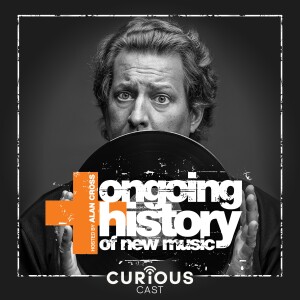
One of the most important parts of music is beat and rhythm...without beats, without rhythm, there’s no groove...without a groove, there’s no movement or dancing or really physically getting into the music...beats and grooves are essential building blocks for so much of modern music...
In some songs, the beat is subtle but there...you feel it without someone having to keep it for you...but in others, you need a timekeeper, someone to emphasize and augment and the beats and the rhythms...
For centuries, that job has fallen to drummers and percussionists...but what if a drummer or percussionist isn’t available?...or if you want to try something rhythmic but with different sounds, sounds that a drummer can’t make?...then you might find yourself reaching for a drum machine...
Since their introduction in the very early 1980s, drum machines have become an essential part of modern compositions and productions...in fact, it’s impossible to imagine the music we have today without such electronic devices...
Oh, we still have human drummers—we always will—but drum machines have taken us places that human timekeepers never could...and I’m speaking as someone who plays drums myself...
But how did this all come about?...let’s investigate...this is the history of machines that keep time for our music...
Learn more about your ad choices. Visit megaphone.fm/adchoices
More Episodes
 2024-11-13
2024-11-13
 2024-11-06
2024-11-06
 2024-11-01
2024-11-01
 2024-10-30
2024-10-30
 2024-10-23
2024-10-23
 2024-10-16
2024-10-16
 2024-10-06
2024-10-06
 2024-10-02
2024-10-02
 2024-09-29
2024-09-29
 2024-09-25
2024-09-25
 2024-09-18
2024-09-18
 2024-09-11
2024-09-11
 2024-09-04
2024-09-04
 2024-08-28
2024-08-28
 2024-08-21
2024-08-21
 2024-08-14
2024-08-14
Create your
podcast in
minutes
- Full-featured podcast site
- Unlimited storage and bandwidth
- Comprehensive podcast stats
- Distribute to Apple Podcasts, Spotify, and more
- Make money with your podcast
It is Free
- Privacy Policy
- Cookie Policy
- Terms of Use
- Consent Preferences
- Copyright © 2015-2024 Podbean.com



